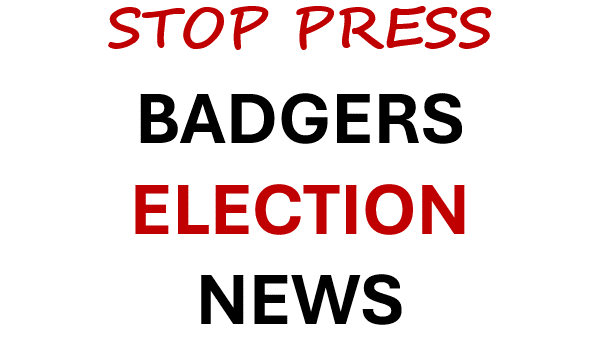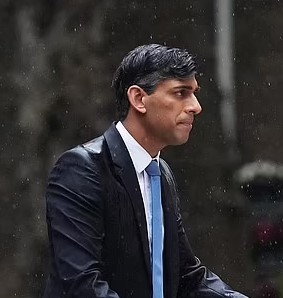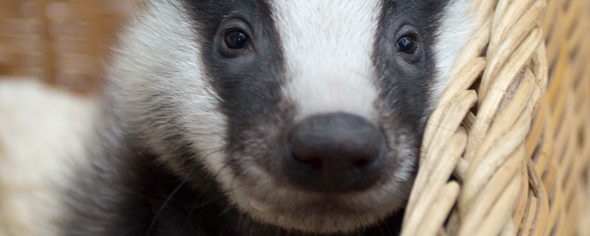
 In March Rishi Sunak seemed intent on killing all the badgers by giving sweeping powers and a very free hand to the Chief Veterinary Officer to cull up to 100% of badgers in areas she deemed appropriate. Now he has now called a General Election for July 4th , which means that Parliament will be prorogued tomorrow, 24 May, and dissolved on 30th May. The public will vote 25 working days later. Government actions are limited during the election campaign ‘pre-election period’ that was previously known as ‘purdah’. The shut-down helps to ensure that public money is not used to support campaigning by the political party in power, and to maintain the impartiality of the civil service.
In March Rishi Sunak seemed intent on killing all the badgers by giving sweeping powers and a very free hand to the Chief Veterinary Officer to cull up to 100% of badgers in areas she deemed appropriate. Now he has now called a General Election for July 4th , which means that Parliament will be prorogued tomorrow, 24 May, and dissolved on 30th May. The public will vote 25 working days later. Government actions are limited during the election campaign ‘pre-election period’ that was previously known as ‘purdah’. The shut-down helps to ensure that public money is not used to support campaigning by the political party in power, and to maintain the impartiality of the civil service.
This could be good news for bovine TB control and badgers if the outcome is that the government does not let the National Farmers Union dominate and dictate its actions, as it has for so long.
30th May is also the date by which DEFRA must respond to the Pre-Action Protocol (PAP) letter issued on 16th May that was supported and funded by The Badger Crowd. We should soon learn what Defra intends to do in response. What are their options? And what will the government that takes over in six weeks’ time be likely to do?
Defra could accept that the consultation was botched and shut it down by doing nothing. The PAP letter gives them the option to withdraw the proposals or to reconsult, which would now be after the election. This is likely to mean that it would now receive a new political steer. The PAP letter also asks that no future proposals are decided before a legal challenge is disposed of – i.e. dismissed or heard in a court trial.
Defra could accept that the consultation was rushed out too hastily without proper consideration, just in case of an early general election and so needs a total rethink. Alternatively, they could try to rush a formal response through next week, so that the principle of ‘targeted culling’ is established before a change of government. They could either keep Natural England licensing or continue to re-badge the NE Bristol licensing office as one of Defra’s own. However, this now looks like a very tall order in the limited time available.
What will the Lib Dems do? Like Labour they will be looking to take back and win over seats in the southwest, in areas where livestock farming dominates the landscape. Not making badger culling a big election issue looks likely to remain important to both political parties, and both are likely to remain tight-lipped. Labour has previously pledged to scrap badger culling, and are the party most likely to hold power next.
Whoever wins the election will be responsible for the bigger challenge of putting in place the appropriate cattle-based measures that will drive down the disease that is embedded in chronic cattle herds. This will have to involve tough restrictions that will cause the beef and dairy to contract. This is something the NFU have resisted and put off, while at the same time holding out a hand for compensation. It’s no easy choice for whoever wins the election. Scrapping badger culling should be an easy decision, but what will really count is making the necessary changes to testing using the expertise pioneered by Dick Sibley in Devon. That might mean scrapping the ineffective BTB Partnership and setting up something that understands the science of the problem, and how to address the problems without reverting to the lay-beliefs of many rural cattle vets, based upon dogma and misinformation from government.
The winning government might also instigate a rapid review of bovine TB control needs early on. Whatever happens next, the actions of Badger Crowd have again been highly effective. Legal letters sent to Defra on 19th and 28th March demanded an extra 3 weeks of consultation time, which gave the legal team time to submit the PAP challenging the legality of the consultation. All of the three legal challenges supported by Badger Crowd since 2017 have been accepted for trial by the High Court, and it would be great if a fourth substantive hearing is now not needed. This would allow time and resources to be better spent, redeployed protecting badgers and dealing with bovine disease in meaningful ways.
Yet again we can dare to find optimism for the future. Let’s hope that it won’t be dashed as it has been so often over the last ten years. The science is clear that badger culling does not work and plays no role in reducing infections in cattle herds. It has to stop. It must stop.
Tom Langton who has figure headed the legal challenges since 2017 said:
“This looks very much more than the beginning of the end. We have fought hard for seven years to highlight the legal and scientific case against badger culling, with breakthroughs more recently, and exposure of actions that are not in the public interest. Of great concern has been the ‘tribal’ behaviour of civil servants and wilful blindness that shows hallmarks of both the blood transfusion and post office scandals. Yet ‘badger blame’ has been ongoing for 50 years now. Thanks to better understanding of the issues involved, we can now start to see the mistakes and misjudgements of the past. The new government will need to focus on how to lower the rates of transmission of bovine TB, much as was done with Covid-19 in humans. This will bring tough times for the beef and dairy industry, but it has to be done to interrupt the dependency on public subsidy, stop the wide range of collateral damage to rural life and the environment that it has caused in recent decades, and finally see progress in eliminating this horrible infection”.
Thanks, and good wishes to all who have supported the Badger Crowd fight against badger culling.
WE ARE THE BADGER CROWD. WE STAND UP FOR BADGERS.

